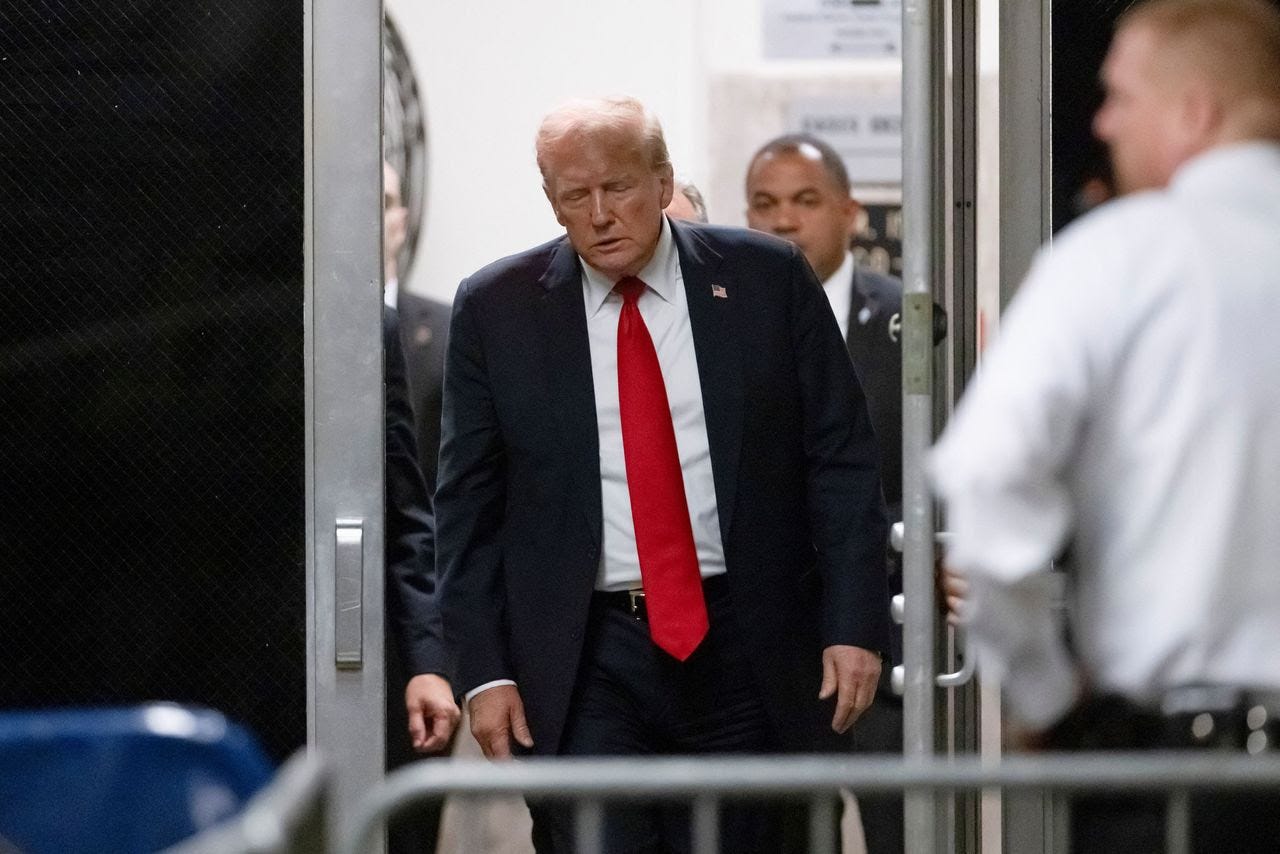Trump NY Hush Money Trial Nears Conclusion with Closing Arguments
The jury is set to begin its deliberations on Wednesday, and under New York law, its verdict must be unanimous. Else, the stage shall be set for a mistrial.

Prosecution’s Closing Argument: A Conspiracy Hypothesized
In a marathon session of closing arguments, Assistant District Attorney Joshua Steinglass on Monday, 28th May, 2024, implored the jury to convict former President Donald Trump, claiming the hush money scheme may have tipped the scales of the 2016 presidential election in his favour. Steinglass framed the alleged crimes as a pivotal moment in American history, asserting that Trump's efforts to conceal a $130,000 payment to adult-film actress Stormy Daniels constituted a conspiracy to “hoodwink the voters” and a consequential cover-up stretching from the campaign trail to the White House.
Steinglass emphasized that Trump knowingly directed the falsification of business records to reimburse the payment, painting a picture of deception and manipulation aimed at preserving his political fortunes. “Everything Mr. Trump and his cohorts did in this case was cloaked in lies,” Steinglass declared, suggesting that the primary beneficiary of these actions was none other than Trump himself.
Defence’s Closing Argument: Discrediting Michael Cohen
Defence attorney Todd Blanche countered with a two-hour argument, urging jurors to dismiss the prosecution’s evidence as insufficient and unreliable. Blanche contended that Trump had no knowledge of the payment orchestrated by Michael Cohen, his former lawyer and fixer. He argued that Cohen acted independently and that Trump’s payments to Cohen were legitimate legal expenses.
Blanche focused on Cohen's credibility, labelling him as the “greatest liar of all time” and casting doubt on his testimony. According to Blanche, Cohen’s history of perjury and criminal activity rendered his accounts inherently dubious. The defence maintained that Cohen's vendetta against Trump and his obsession with revenge drove his narrative, not the facts.
The Battle Over Credibility
Throughout his closing, Steinglass urged the jury to see beyond Cohen’s flaws and consider the broader context of the evidence. He likened Cohen to a “tour guide” who could help connect the dots of the paper trail, despite his tarnished reputation. “This case is not about Michael Cohen. This case is about Donald Trump and whether he should be held accountable,” Steinglass asserted.
In contrast, Blanche reiterated that the entire case rested on Cohen's unreliable word, describing the prosecution’s foundation as built on quicksand. He argued that Cohen’s testimony was self-serving and lacked corroboration, urging the jury to see Cohen as a biased and vengeful figure.
The Judge's Crucial Instructions
As the trial neared its end, New York Supreme Court Justice Juan Merchan's instructions to the jury loomed large. The jury is tasked with determining the facts, not the law, making the judge's guidance vital in navigating the complex evidence and testimonies. The requirement for a unanimous verdict underscores the importance of each juror's interpretation of the credibility of witnesses, particularly Cohen.
The Role of Michael Cohen's Testimony
The outcome of this historic trial will hinge significantly on the jury’s assessment of Michael Cohen’s credibility. Despite his prior conviction for perjury, Cohen's detailed accounts and insider knowledge present a critical juncture for the jury. As they deliberate, the jurors must weigh the prosecution’s portrayal of a calculated conspiracy against the defence’s narrative of a vindictive and unreliable witness. The instructions provided by Justice Merchan will play a pivotal role in guiding the jury towards a unanimous verdict, shaping the legacy of this unprecedented trial of a former U.S. President.
Awaiting the Jury's Verdict
As the jury retreats to deliberate on Wednesday, all we can do is wait. In Trump's hush money trial, a unanimous verdict is required to either convict or acquit him. This means all 12 jurors must agree on each count. If the jury cannot reach a unanimous decision, it would result in a hung jury and a mistrial. As reported by Al Jazeera, "All 12 jurors must agree on the decision for the judge to accept it. If the jury cannot unanimously decide a verdict, it would result in a mistrial."
Therefore, the 12 jurors must all agree to either convict Trump on the charges of falsifying business records related to the Stormy Daniels hush money payment or to acquit him. Anything less than a unanimous 12-0 vote would result in a hung jury, and the judge would have to declare a mistrial. The outcome hinges on this crucial deliberation.




